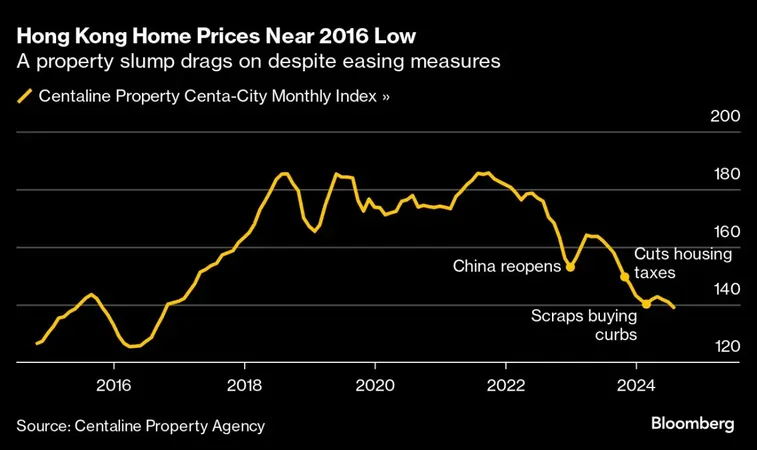
Hong Kong Unveils Ambitious Strategy to Attract Wealthy Migrants and Revitalize Economy
2024-10-16
Author: Ying
Hong Kong's Bold Move
In a bold move to cement its status as a leading global financial hub, Hong Kong is significantly expanding its initiative to attract affluent migrants, particularly through luxury property investments. Chief Executive John Lee revealed plans to amend the existing Capital Investment Entrant Scheme, allowing contributions from luxury real estate purchases to count towards the required HK$30 million (approximately US$3.86 million) investment.
New Guidelines for Investors
Under the new guidelines, acquiring homes valued at HK$50 million or more will account for one-third of the investment criteria. This strategic shift comes at a critical time as Hong Kong aims to rally its struggling real estate sector and entice foreign capital amidst stiff competition from regional rivals like Singapore.
Tax Reductions to Stimulate Spending
In tandem with this initiative, Hong Kong’s government will also be reducing taxes on spirits to stimulate consumer spending and buoy the beleaguered service industry, which is still fighting to recover from the COVID-19 pandemic. The hospitality and retail sectors have particularly suffered, with tourist numbers and consumption rates remaining noticeably below pre-pandemic levels.
Economic Growth Amid Challenges
Lee's government has focused on economic revitalization since the implementation of the national security law, which has drawn international scrutiny for its impact on free speech and civil rights. Nevertheless, the city’s economy did show a glimmer of hope, expanding within the government’s forecast range of 2.5% to 3.5% in the first half of the year, primarily buoyed by robust export performance. However, this growth comes with an ominous backdrop, characterized by declining property values and ongoing geopolitical tensions.
Migration Goals and Investments
The revamped migration program aims to attract approximately 4,000 new migrants and generate around HK$120 billion in investment annually. Just last year, the scheme was reintroduced after a hiatus, reflecting Hong Kong's determination to draw in talent and capital.
Easing Restrictions and Market Challenges
Additionally, amid falling real estate prices — which have now plummeted to the lowest figures since 2016 — Lee’s administration has eased property purchase restrictions and reduced taxes to engender a more favorable market environment. Despite these efforts, a troubling rise in bankruptcies and dwindling consumer confidence underline the tough challenges the city faces.
Future Directions for Economical Growth
As Hong Kong seeks to transform its economic landscape, plans to revitalize the healthcare and biotechnology industries have been highlighted, with a fresh look at the HK$2 billion (US$258 million) Innovation and Technology Venture Fund being part of this initiative.
Conclusion: A Crossroads Ahead
The city stands at a crossroads, balancing the pursuit of economic prosperity with the need to maintain its standing in a rapidly evolving geopolitical environment. Will these newly unveiled strategies be enough to restore faith in Hong Kong’s economic future? Only time will tell.

 Brasil (PT)
Brasil (PT)
 Canada (EN)
Canada (EN)
 Chile (ES)
Chile (ES)
 España (ES)
España (ES)
 France (FR)
France (FR)
 Hong Kong (EN)
Hong Kong (EN)
 Italia (IT)
Italia (IT)
 日本 (JA)
日本 (JA)
 Magyarország (HU)
Magyarország (HU)
 Norge (NO)
Norge (NO)
 Polska (PL)
Polska (PL)
 Schweiz (DE)
Schweiz (DE)
 Singapore (EN)
Singapore (EN)
 Sverige (SV)
Sverige (SV)
 Suomi (FI)
Suomi (FI)
 Türkiye (TR)
Türkiye (TR)